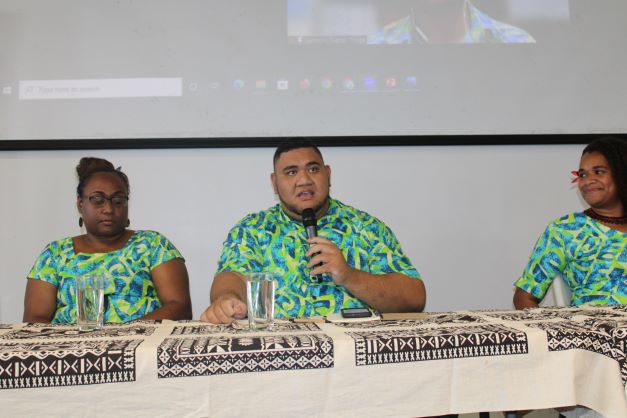Related News

The historic decision to establish a Loss &Damage (L&D) fund to assist vulnerable nations severely impacted by climate-related disasters was a breakthrough for the Pacific Island Nations. The breakthrough was made after 36 straight hours of negotiations in the final hours of the negotiations.
The establishment of a specific fund for L&D was a significant step forward, especially given that the issue was only added to the official agenda before the official opening and adoption of the provisional agenda – a key ask the Pacific-SIDS and AOSIS fought hard for
In addition to establishing the L&D fund, governments concurred to form a transitional committee to advise on how to operationalize the new financial arrangement and the fund at COP28 next year.
The transitional committee’s inaugural meeting is anticipated to take place before the end of March 2023
Christian-Yves-Amato, who is currently pursuing a Master’s of Science in Climate Change, was one of the four students funded by the European Union’s Pacific Adaptation to Climate Change and Resilience Building (PACRES) programme who attended the 27th Conference of Parties (COP).
During a panel discussion organized by the Pacific Centre for Environment and Sustainable Development (PaCE-SD) students shared first-hand experiences and reflected on the COP27 negotiations outcomes.
Christian acknowledged the EU PACRES Programme in supporting his participation at COP27. In sharing his experiences Christian said, “The challenge over the next 12 months for Fiji and the Pacific is to ensure that the Pacific has a voice within the transitional committee and ensuring that we get majority seats and maximum representation, and also make sure that however we’re represented there, ensure that there is good advice given.”
He added “Keeping that connection to 1.5 and not overshooting, at the same time increasing Loss and Damage progress is important. We can’t have mitigation ambitions falter and then expect some form of payout on loss and damage to ease it; all of which will be really important going into COP28.”
Parties also agreed on institutional arrangements for the Santiago Network for, L&D which will catalyze technical assistance to developing countries that are especially vulnerable to the adverse effects of climate change.
The University of the South Pacific (USP), component of the EU funded Intra-ACP GCCA+ PACRES programme is implemented in partnership with the Secretariat of the Pacific Regional Environment Programme (SPREP), the Pacif-ic Community (SPC), and the Pacific Islands Forum Secretariat (PIFS).